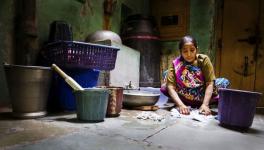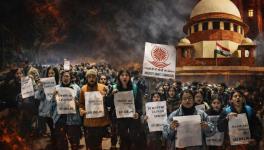Why Justice Eludes Mohsin Sheikh or Payal Tadvi?
Mohsin Sheikh was New India’s first victim of communal mob lynching. Exactly after a week of Narendra Modi’s swearing in ceremony as Prime Minister in 2014, he was murdered on June 2, by the Hindu Rashtra Sena in Pune. This was much before Mohd Akhlaq’s killing in Dadri or other cow-related violence in India. Five years have passed, but justice still eludes Mohsin’s family. His father is no more, but his brother continues to fight.
Mohsin was an IT professional. He was lynched because he wore a green shirt and was returning after offering namaz. Twenty one members of Hindu Rashtra Sena were arrested, along with their leader Dhananjay Desai. After five years, Desai and the main accused are out on bail. When Desai was released on bail, his supporters welcomed him as a hero and used this occasion to spread terror once again.
The case is languishing in court. Special public prosecutor Ujjwal Nikam recused himself from this case for political reasons. He was accused of accepting felicitation from Hindutva organisations. The government has not bothered to appoint a new lawyer in his place. Mohsin’s brother Mubin was assured a government job. In spite of repeated follow-ups, the promise has not been fulfilled. This took a toll on the health of Mohsin’s father and he passed away in December 2018.
Mohsin’s family faces severe financial and psychological problems today. Youngsters from Solapur have started a campaign ‘Justice for Mohsin’ recently. But no political party has extended support. The Bharatiya Janata Party government ignored repeated pleas by Mohsin’s family for obvious reasons. His brother is frustrated and sees no hope. In contrast, the Modi regime has patronised Hindutva terror accused, such as Pragya Thakur and Aseemanand or Colonel Prasad Purohit.
I fear Payal Tadvi’s recent suicide would go down a similar road. Payal was the first medical post-graduate from the adivasi Bhil community. She was a Muslim too. On May 22, she ended her life in the hostel of Nair Hospital Medical College in Mumbai. Her parents accused her senior doctors of torture along caste lines. Her mother wrote a detailed letter to the dean of the hospital about this on May 10, 2019, twelve days before her suicide, but it fell on deaf ears.
Initially, the media, hospital administration and police tried to ‘suppress’ Payal’s suicide. This gained traction after activists did not allow the issue to die down. The three accused doctors were arrested after a week and are now in judicial custody. The college‘s anti-ragging committee, which ignored complaints by Payal’s mother, prepared an instant report. They acknowledged ragging, but refused to investigate caste discrimination, leaving it to the police. The Maharashtra Health Minister initially admitted to the caste angle, but changed his line after a few days. Bogus stories of Payal’s family problems were circulated in the media. The attempt was to focus on torture and deflect from caste discrimination. Some Right-wing Twitter handles also tried to deny that Payal was a Muslim.
There are striking similarities between Payal’s and Rohith Vemula’s case. The Modi government tried hard to prove that Vemula was not a dalit.
Those accused of torturing Payal are so well connected that political pressure in this case is a forgone conclusion. Payal’s family has already complained about the appointment of government pleader. You may say that I am pessimistic, but Mohsin’s murder or Payal’s suicide is just the tip of the iceberg. Dalit, Muslims and adivasis have cases like Mohsin, Rohith or Payal will rarely see the light of justice in India. We are still a casteist and communally-polarised society. constitutional rights, but in practice, they are treated like second grade citizens.
A majority of our society happily lives in denial. There is no casteism in metro cities, we are told. Payal’s suicide is a slap on our so-called modern face. A section of the society calls for abolition of the Atrocities Act every now and then. But Payal’s death confirms the relevance of the Act.
In 2017, the Sukhdev Thorat Committee had produced a report on caste discrimination in Delhi’s All India Institute of Medical Sciences. Both the Congress-led United Progressive Alliance and the BJP-led National Democratic Alliance governments ignored its valuable suggestions. There are several investigations on discrimination of Muslims. The Sachar Committee Report is still gathering dust. Unless we act on the recommendations made by credible committees, Dr Babasaheb Ambedkar’s dream of an equal society would remain distant. There is no hope for this country unless we get rid of this poison of caste and religious discrimination.
Get the latest reports & analysis with people's perspective on Protests, movements & deep analytical videos, discussions of the current affairs in your Telegram app. Subscribe to NewsClick's Telegram channel & get Real-Time updates on stories, as they get published on our website.























